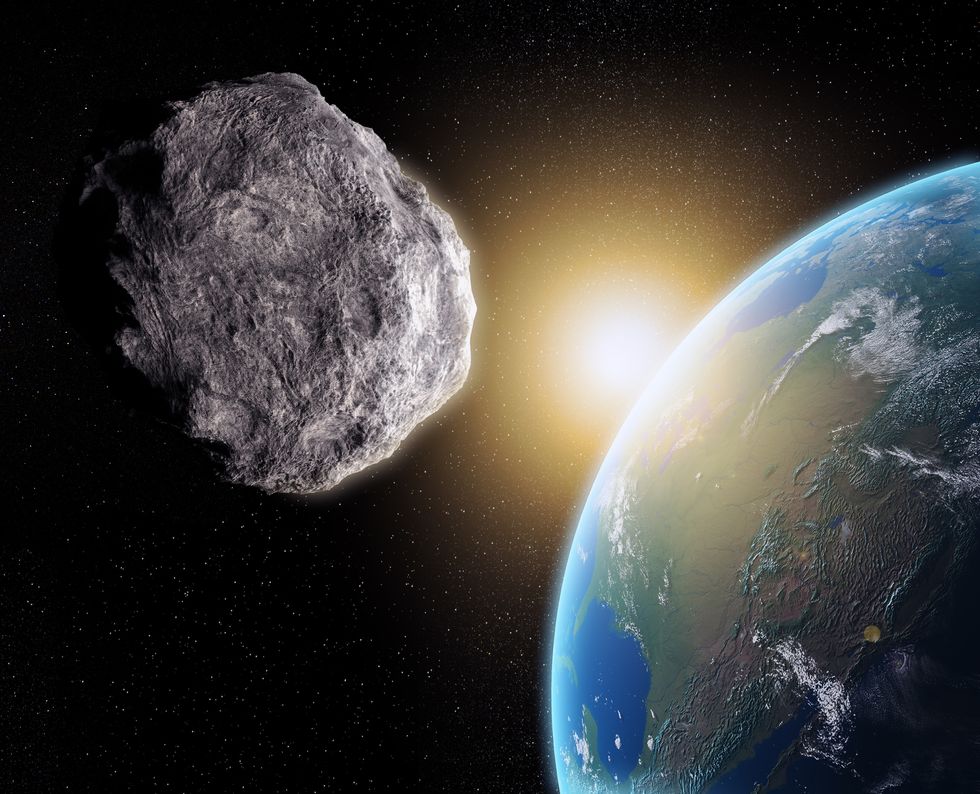The incident highlighted a critical gap in Earth's planetary defences
Don't Miss
Most Read
Trending on GB News
Asteroid hunter Dr Franck Marchis has warned the world was perilously close to disaster just days ago.
Earlier this week, an asteroid exploded in the skies above Siberia, giving space agencies worldwide just seven hours of warning before impact.
Whilst this particular space rock was only 70cm across and burned up harmlessly in the atmosphere, Marchis warns this was too close for comfort.
"If it had been slightly bigger, that would been a very different story," Dr Marchis, senior astronomer at the SETI Institute, told MailOnline.
The incident has highlighted a critical gap in Earth's planetary defences, with professional space agencies lacking sufficient resources to monitor all potential threats.
Marchis explained: "Asteroids can come at any moment towards Earth.

The asteroid could have caused serious damage had it been any bigger
GETTY
"Having eyes on the sky everywhere in the world allows us to track them."
Currently, Nasa and the European Space Agency monitor 36,765 near-Earth objects, with 2,442 classified as potentially hazardous.
However, Marchis explains that most professional telescopes are concentrated in specific regions, creating dangerous blind spots in global coverage.
"There are multiple stations around the world, professional telescopes, that detect and characterise objects but most of them are located in the same area," he said.
"If an asteroid is coming to us from over Japan or Russia there is nobody looking in this direction, so we still have what we call dark zones."
The stakes are high, as even relatively small asteroids can cause devastating damage. The 2013 Chelyabinsk meteor, just 18 metres wide, injured over 1,600 people and damaged more than 7,000 buildings.
Scientists need years of warning, not hours, to effectively protect Earth from potential city-killer asteroids.
Marchis's solution to this monitoring challenge came through founding Unistellar in 2015, after initially considering a satellite-based approach.
The company produces "smart telescopes" that enable amateur astronomers to join a worldwide observation network.
These relatively affordable telescopes can automatically track objects in space and share their measurements with other civilian observers.
When Nasa or the ESA's wide-angle telescopes spot potential threats, they notify a database called the Minor Planets Centre.
"Amateur astronomers including those in our network get this notification and use our telescopes to refine the observation," explained Marchis.
"It's by combining all those eyes together that refines the predicted orbit of the asteroid and confirms whether it is an asteroid rather than a piece of rocket."
This civilian network helps illuminate the world's dark zones, providing crucial additional coverage for planetary defence.
Marchis is hoping to expand the amateur network, particularly in developing countries where dark zones persist.
"If people like astronomy or if they want to do something more meaningful in their life they should really look at what we do in citizen science," he said.
"This is a movement which is going to change the way we progress as a civilisation and Unistellar is proof that every human can make remarkable discoveries that will one day change humanity."








